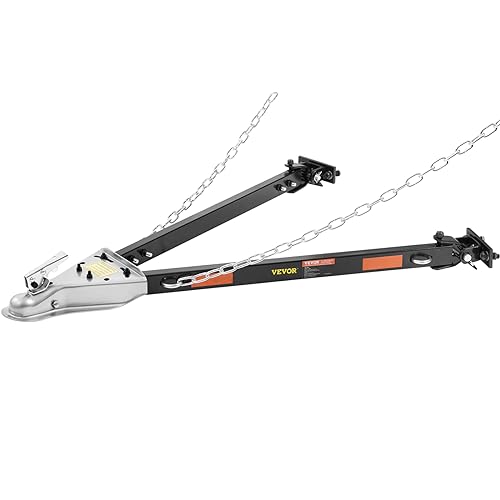How Heavy are Cars? Uncover the Surprising Truth!
Cars typically weigh between 2,000 and 4,000 pounds. Smaller vehicles, like sedans, are lighter, while larger SUVs and trucks weigh more.
Understanding the weight of cars is crucial for various reasons. Vehicle weight affects fuel efficiency, handling, and safety. Manufacturers design cars with specific weights to meet performance standards and regulations. Lighter cars often achieve better gas mileage, while heavier models may offer more stability and protection during collisions.
Weight also plays a significant role in emissions and environmental impact. As consumers become more eco-conscious, knowing a car’s weight can influence purchasing decisions. This insight helps buyers choose vehicles that align with their lifestyle and preferences, making informed choices essential in today’s automotive market.
Introduction To Car Weights
Car weight plays a crucial role in performance and safety. Lighter cars often offer better fuel efficiency. Heavier cars typically provide more stability and protection in accidents.
Understanding car weights helps buyers make informed decisions. Different types of cars have varying weights. Here is a simple table showing average weights:
| Car Type | Average Weight (lbs) |
|---|---|
| Sedan | 3,000 – 3,500 |
| SUV | 4,000 – 5,000 |
| Truck | 4,500 – 6,000 |
| Sports Car | 2,500 – 3,500 |
Historical Weight Trends
The size of cars has changed a lot over the years. Early cars were small and lightweight. They weighed around 1,000 pounds. Modern cars, however, can weigh over 3,000 pounds. This change is due to many factors.
One factor is safety. New cars have more safety features. These features add extra weight. Technology also plays a role. Features like GPS, cameras, and entertainment systems make cars heavier.
Different types of cars have different weights. For example, SUVs and trucks are usually heavier than sedans. Understanding these trends helps people choose the right car for their needs.
Classification By Type
Compact cars</strong are small and lightweight. They usually weigh between 2,500 and 3,000 pounds. These cars are great for city driving.
Sedans are slightly larger. Their weight ranges from 3,000 to 3,500 pounds. Sedans offer more space for passengers.
SUVs are heavier. They can weigh from 4,000 to 6,000 pounds. SUVs provide more cargo space and better off-road capability.
| Type | Weight Range |
|---|---|
| Compact | 2,500 – 3,000 lbs |
| Sedan | 3,000 – 3,500 lbs |
| SUV | 4,000 – 6,000 lbs |
Trucks are built for heavy loads. Their weight usually starts at 4,000 pounds. Heavy-duty trucks can exceed 8,000 pounds.
These vehicles are used for transporting goods. They are essential for construction and delivery services.
Factors Influencing Weight
Several factors influence a car’s weight. One major factor is material use. Cars can be made from steel, aluminum, or plastic. Aluminum is lighter than steel. This choice affects overall weight and fuel efficiency.
The engine size also plays a crucial role. A larger engine typically weighs more than a smaller one. Components like the transmission and exhaust system add weight too. Heavy engines can lead to heavier vehicles.
In summary, both material use and engine size significantly impact a car’s weight. Understanding these factors helps in designing efficient and effective vehicles.
Environmental Implications
The weight of a car greatly affects its fuel efficiency. Heavier cars need more energy to move. This can lead to higher fuel consumption. Increased fuel use can cause more emissions. Lighter vehicles often have better mileage and lower emissions. Reducing a car’s weight can improve its environmental impact.
Research shows a strong link between car weight and emissions. Heavier cars typically produce more carbon dioxide. This worsens air quality and contributes to climate change. Manufacturers are now focusing on creating lighter materials. This shift aims to enhance performance and reduce emissions.
Weight Reduction Technologies
New materials are changing car design. Lightweight materials help reduce weight. Cars use aluminum, composite, and high-strength steel. These materials make cars safer and more fuel-efficient.
Innovative design strategies play a big role. Engineers focus on shapes that minimize air resistance. This makes cars faster and uses less fuel. Smart weight distribution improves handling and safety.
Using simulation technologies helps in designing lighter cars. Engineers can see how materials perform under stress. This leads to better decisions in material use and design.
Regulatory Standards And Testing
Government safety regulations set rules for car weights. These rules help ensure road safety. Cars must meet certain weight limits. These limits vary by country.
Weight affects how cars handle and stop. It also impacts fuel efficiency. Testing procedures check the weight of cars before they hit the market.
| Testing Procedure | Description |
|---|---|
| Weighing Scale | Cars are placed on a large scale to measure weight. |
| Load Testing | Cars are tested under different weight conditions. |
| Certification | Only cars that pass weight tests receive a safety certificate. |
Future Of Car Weight
The future of car weight is changing quickly. Manufacturers focus on making cars lighter. This helps improve fuel efficiency and performance.
Electric vehicles (EVs) are leading the way. They often use lighter materials like aluminum and carbon fiber. This makes EVs more efficient and increases their range.
Autonomous features also impact car weight. Self-driving cars need extra sensors and computers. These additions can make them heavier. Finding a balance is important for performance.
| Feature | Impact on Weight |
|---|---|
| Electric Vehicles | Focus on lighter materials |
| Autonomous Features | Increases weight due to sensors |
Frequently Asked Questions
How Much Does An Average Car Weigh?
The average car weighs between 2,500 to 4,000 pounds. Factors such as size, materials, and design influence this weight. Compact cars tend to be lighter, while SUVs and trucks are heavier. Understanding a car’s weight can impact fuel efficiency and performance.
What Is The Heaviest Car Model?
The heaviest car model is often a luxury SUV or truck. For example, the 2021 Ford F-450 Super Duty can weigh over 8,000 pounds. This weight is due to its robust frame and features. Heavier vehicles may offer more towing capacity but can consume more fuel.
How Does Car Weight Affect Performance?
Car weight significantly impacts performance, including acceleration and handling. Lighter cars typically accelerate faster and are easier to maneuver. Heavier cars may provide better stability but can be less fuel-efficient. Balance is essential for optimal driving experience and safety.
Are Electric Cars Heavier Than Gas Cars?
Generally, electric cars are heavier than gas cars. This is due to their large battery packs, which add significant weight. While heavier, electric cars often have lower center of gravity, improving stability. However, this weight can affect range and energy efficiency.
Conclusion
Understanding the weight of cars is crucial for various reasons. It affects fuel efficiency, safety, and performance. Lighter vehicles often consume less fuel and are easier to handle. Knowing your car’s weight can help you make informed decisions. Stay mindful of these factors for a better driving experience and smarter choices.







